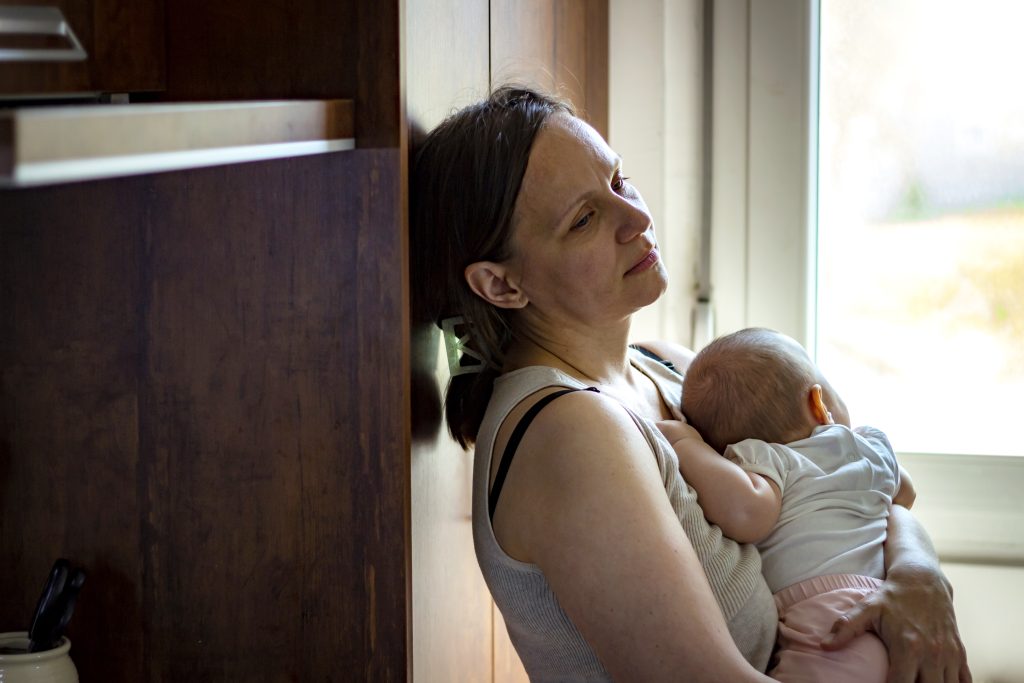A Look at Postpartum Depression vs. Postpartum Blues

The arrival of a new baby is an exciting time, but it is also exhausting and overwhelming. But how does one know if moodiness and tiredness is the result of sleepless nights and a new routine or if it’s something more?
How can I tell if I’m experiencing Postpartum Depression?
There are a number of ways to differentiate between Postpartum Blues, (mild feelings of depression and anxiety that typically appear within the first one-to-two weeks of giving birth) and Postpartum Depression (more severe and persistent feelings of depression and anxiety that typically show up anytime from a few weeks to two years after the birth of a baby).
(Note: Postpartum Blues used to be called ‘Baby Blues,’ but health care providers are increasingly using the term ‘Postpartum Blues’ to steer clear of any implication that baby is to blame for how mom is feeling.)
Here is where to start:
- Look at the timing of the onset of the symptoms. With Postpartum Blues (experienced by up to 85% of new moms), symptoms occur within one to two weeks following the birth of a baby. With Postpartum Depression (experienced by 10 to 15% of new moms), symptoms can occur anytime between a few months to up to two years following the birth.
- Consider the severity of the symptoms. With Postpartum Blues, symptoms of anxiety and depression are mild. With Postpartum Depression, the symptoms are much more severe. These symptoms may include feelings of sadness and emptiness, constant fatigue, trouble sleeping, changes to eating habits (either eating too little or too much), a strong sense of failure or inadequacy, intense concern and worry about the baby or a lack of interest in the baby, thoughts of suicide, or fears of harming the baby. (Note: If a mother experiences a severe depression following the birth of her baby — one in which she experiences hallucinations or thoughts about harming her baby or herself’ — she is said to be experiencing Postpartum Psychosis. Fortunately, Postpartum Psychosis is quite rare, affecting just one to two out of each 1000 women who have given birth recently.)
- Be prepared for the need for treatment. The Postpartum Blues will resolve itself on its own within a couple of days. Take the best possible care of yourself in the meantime by getting as much rest as you can, asking for help from family and friends, and making an effort to get out for a walk each day. Postpartum Depression requires medical evaluation and treatment (typically medication and/or group or individual therapy). Other treatments such as bright light therapy may also be recommended.
Do I Really Need to Seek Treatment for Postpartum Depression?
It is important to seek treatment. Because, if left untreated, Postpartum Depression can lead to difficulties in bonding or caring for your baby. That, in turn, can lead to delays in your baby’s development. It can also put major stress on your relationship with your partner. The sooner you recognize the symptoms of Postpartum Depression in yourself and reach out for help, the sooner things (but, most importantly, YOU) can start to get better.











